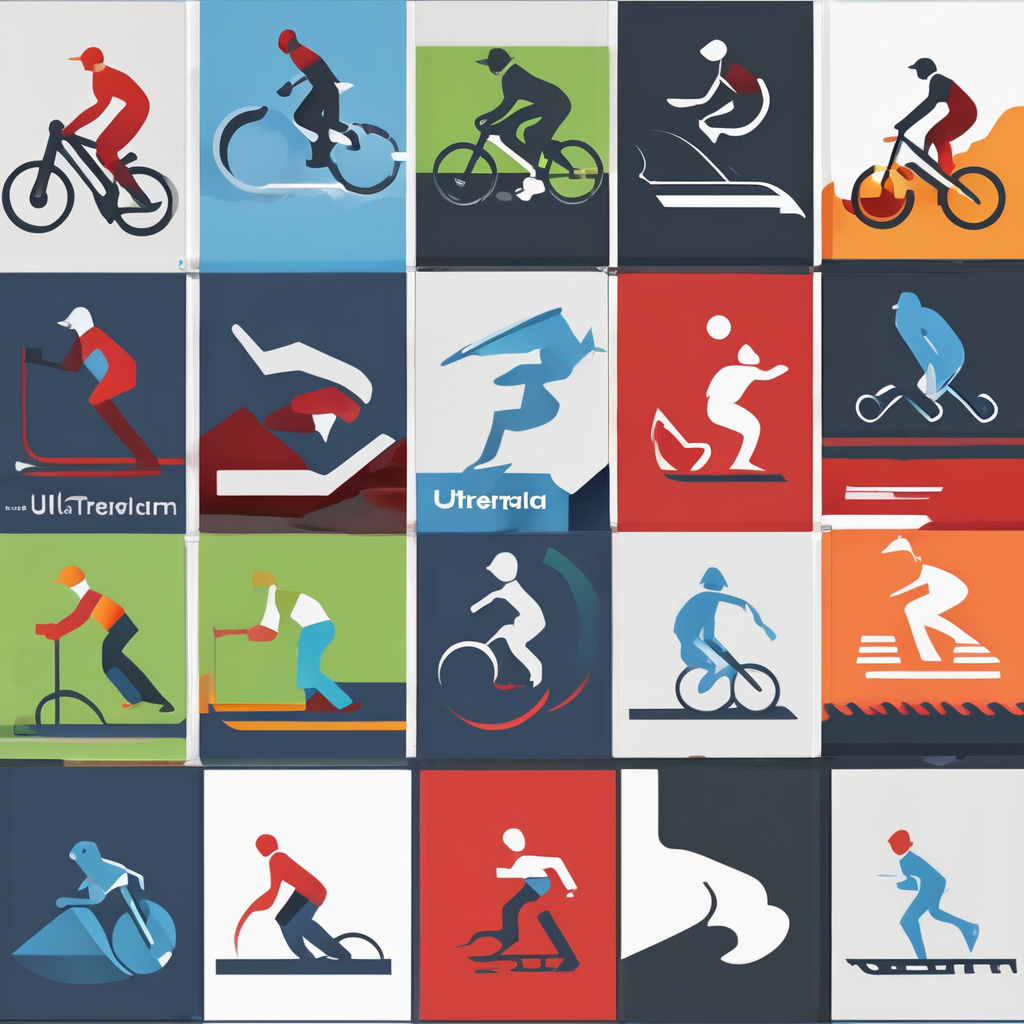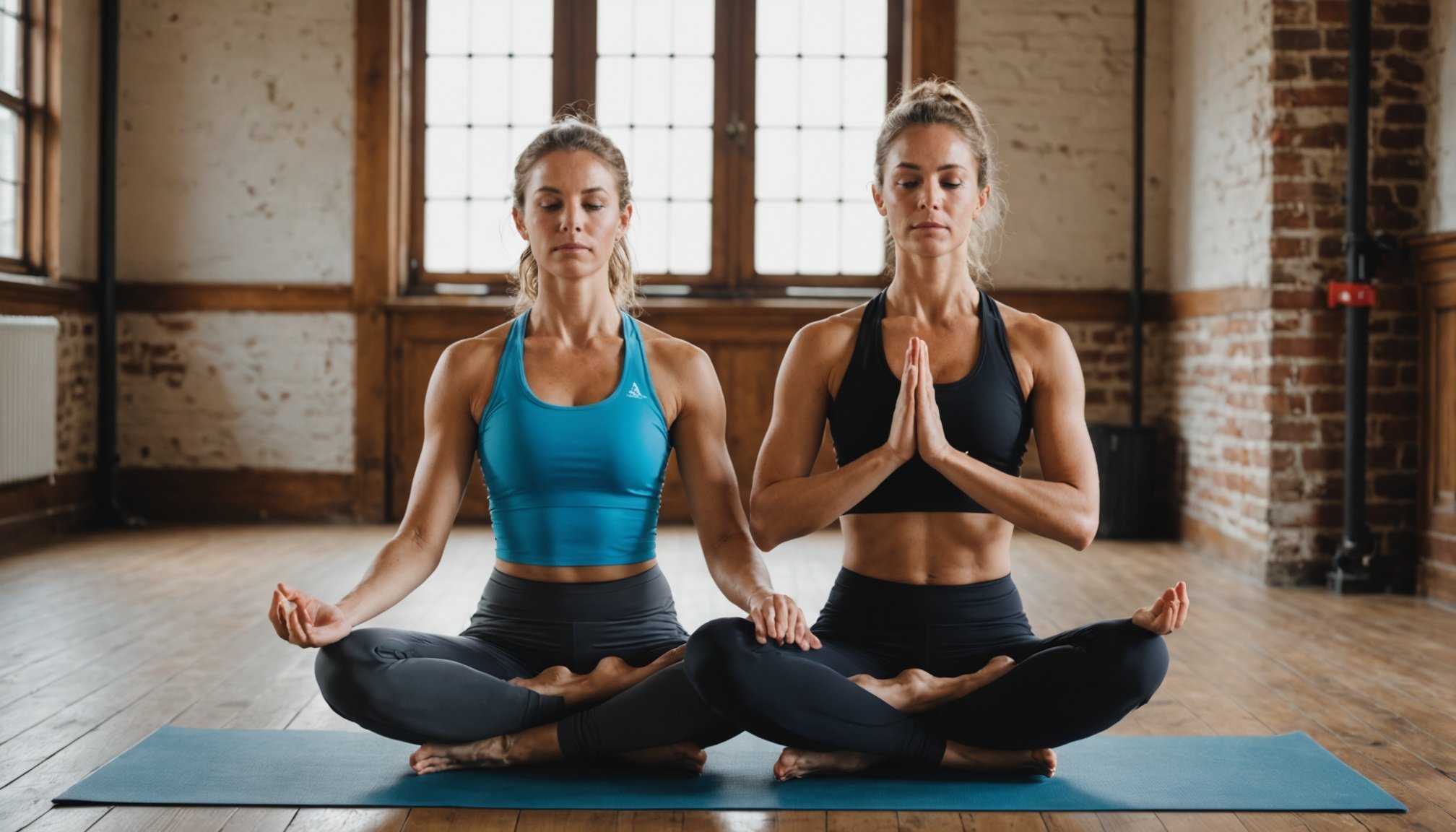Overview of Yoga and Mindfulness Benefits for Athletes
Yoga and mindfulness have become integral components in the world of sports, recognised for enhancing both mental and physical attributes crucial for athletic performance. Yoga combines postures, breathing techniques, and meditation to improve flexibility, strength, and mental clarity, essential for any athlete striving for peak performance. Mindfulness, on the other hand, emphasises present-moment awareness, helping athletes to maintain focus and calm under pressure.
From a physiological perspective, incorporating yoga into an athlete’s routine can lead to increased mobility and reduced injury risk. These disciplines help in enhancing body awareness and balance, crucial for excelling in competitive sports. Psychologically, athletes report improved concentration and stress management through consistent mindfulness practice, translating to better decision-making during events.
In parallel : Elevating Off-Season Conditioning: Innovative Strategies for UK Sports Teams
Studies have shown that incorporating yoga and mindfulness training can lead to a performance boost. According to research, athletes practising these methods regularly reported a significant improvement in focus and resilience, with some studies noting up to a 30% enhancement in overall performance metrics.
Understanding and implementing these practices can be a game-changer for athletes, providing them with a competitive edge while fostering overall well-being.
Also read : Mastering balance and poise: key techniques for uk figure skaters to thrive in high-pressure moments
Connecting Mindfulness to Athletic Training
Incorporating mindfulness training into athletic regimens can profoundly enhance mental resilience among athletes. This mental fortitude allows athletes to stay composed under pressure, enhancing their overall performance. Mindfulness techniques, such as meditation and breathing exercises, are pivotal in fostering this psychological robustness.
Athletes can implement such techniques by integrating short meditation sessions before and after training. During these sessions, focussing on the breath or a particular mantra helps athletes centre their thoughts and remain present. This approach, when practised regularly, contributes significantly to focus improvement by reducing distractions during competitions.
Moreover, substantial evidence suggests that mindfulness not only enhances focus but also alleviates anxiety, a common hindrance in competitive sports. Actively practicing mindfulness encourages athletes to acknowledge and release negative thoughts, creating a mental state conducive to peak performance.
Across numerous sports disciplines, teams and individual athletes are discovering that mindfulness training empowers them to compete more effectively. By cultivating an improved mental landscape, athletes can confidently face the rigours of competition, often outperforming those less attuned to their mental processes. Thus, mindfulness becomes an indispensable tool for advancing athletic prowess and maintaining competitive edge.
Yoga Practice Enhancing Physical Performance
Yoga practice is a powerful tool for athletes aiming to enhance both flexibility and strength. By consistently engaging in yoga, individuals can significantly improve their range of motion, which is essential for all athletic pursuits. Increased flexibility allows athletes to perform more efficiently and helps them achieve movements with ease, reducing the risk of strain.
Furthermore, yoga also builds functional strength. This is vital for supporting athletic performance. Unlike traditional weight training, which often focuses on muscle mass, yoga encourages balanced muscle use, enhancing overall stability. This balance can lead to improved endurance and performance across various sports disciplines.
Injury prevention is another significant benefit of yoga. Through a focus on proper alignment and controlled muscle engagement, yoga practice helps maintain muscle and joint health. Over time, athletes can develop a keen awareness of their body’s mechanics, which plays a crucial role in mitigating potential injuries.
UK athletes have shared testimonials about their positive experiences with yoga practice. Many have highlighted how it aids in muscle recovery and contributes to their overall well-being. This integration of yoga into their routines not only supports their physical performance but fosters a greater sense of mental clarity and resilience.
Incorporating Yoga and Mindfulness into Daily Routines
Finding ways to integrate yoga and mindfulness into your daily practice can significantly enhance both mental and physical wellbeing. Whether you’re new to these practices or an athlete seeking to incorporate them into training schedules, here are some practical tips to keep in mind.
Firstly, identify short windows of time within your day to dedicate to mindfulness or yoga. Even 5-10 minutes in the morning or evening can build a consistent habit. For athletes with rigorous training schedules, consider blending short yoga sessions into warm-up or cooldown periods to increase flexibility and mental focus.
To establish effective daily routines, start with simple stretches or a few minutes of mindful meditation. This could gradually develop into a more elaborate yoga sequence or longer meditation sessions, depending on your progress and schedule flexibility. Ensure you’re addressing all major muscle groups and practicing mindful breathing, expanding gradually.
For beginners, especially in the UK, there are numerous online programs to kickstart your journey. These programs often offer structured daily routines that are easy to follow and scale as you grow more comfortable. Over time, integrating these practices into daily life can cultivate a more balanced and serene mindset.
Case Studies: Successful UK Athletes
Personal accounts from elite UK athletes offer intriguing insights into the benefits they experience in their professions. Their performance stories often reveal not only the physical advancements but also essential mental shifts necessary for competitive success. For instance, one athlete discussed how adopting mental imagery techniques significantly improved their focus and composure under pressure.
Case studies of various athletes highlight performance enhancement through dedicated practices. A diver, for example, shared a meticulous training regimen that utilised virtual reality for perfecting dives without exhausting physical resources. Such innovative approaches have undeniably resulted in more consistent performance outcomes.
These stories also showcase the competitive edge gained by integrating both traditional and modern techniques. An Olympic sprinter, for instance, credited a mix of mindfulness exercises and personalised coaching analytics for their outstanding burst of speed. This hybrid approach was seen as pivotal for quick response in competitive environments.
Athlete testimonials further underscore the importance of these strategies. Many express that aside from physical improvements, their mental preparation was paramount in securing victories. The mental resilience and agility depicted in these accounts underline the comprehensive nature of athletic excellence paving the way for many aspiring performers.
Resources and Programs for Athletes in the UK
In the United Kingdom, a broad array of yoga classes and mindfulness workshops are available to support athletes in enhancing their mental and physical well-being. These sessions often focus on improving flexibility, balance, and mental clarity, tailoring to the unique demands of athletes. Within the UK, several high-profile yoga retreats are specifically designed to aid athlete development, offering immersive experiences that combine physical practice with relaxation techniques.
Numerous mindfulness workshops across the country hone in on stress reduction and mental fortitude, essential for athletes keen on peak performance. Retreats frequently incorporate expert-led sessions on mental focus, breathing techniques, and stress management, creating a holistic development environment.
For those looking for flexible learning options, various online resources and mobile applications provide easily accessible methods to practice both mindfulness and yoga. These digital platforms often feature specialised programming and exercises suitable for athletes, enabling them to integrate such practices into their routine with ease. Programs are customisable, meeting the diverse needs of athletes regardless of location and schedule. With the evolving landscape of digital wellness, athletes have unprecedented access to resources that enhance their training and recovery.
Future Trends in Yoga and Mindfulness for Athletes
As athletes increasingly seek holistic approaches to enhance performance, emerging trends in yoga and mindfulness are gaining traction. Recent studies indicate a growing integration of these practices into training regimens, reflecting a shift towards comprehensive athlete wellness.
Emerging Trends
Yoga and mindfulness are becoming pivotal in not only improving physical abilities but also in bolstering mental resilience. Athletes are incorporating these practices to enhance focus, agility, and overall well-being. Notably, yoga sessions tailored for sport-specific movements are rapidly gaining popularity, pinpointing the unique needs of each athletic discipline.
Research Developments
The research developments surrounding yoga and mindfulness reveal their substantial benefits on athletic performance. Studies suggest that mindful exercises reduce stress levels and improve injury recovery times, which are crucial factors for sustained athletic excellence. There is an increasing body of evidence supporting these practices as effective tools for maintaining long-term athlete wellness.
Performance Optimization
In the evolving landscape of athlete wellness, tracking performance optimization through yoga and mindfulness is becoming more sophisticated. Innovative technologies are enabling athletes to monitor physiological responses during these practices, offering tailored insights into performance enhancements. This personalized approach signifies a promising development in maximizing an athlete’s potential while maintaining overall health.











